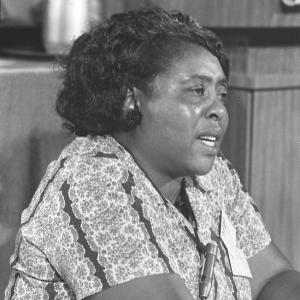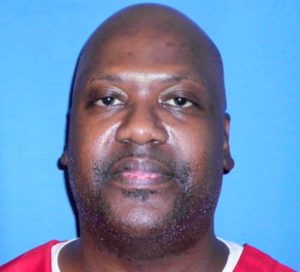 The case of Curtis Flowers burst into the headlines in June. By a 7-2 margin the Supreme Court of the United States found that prosecutor Doug Evans had illegally excluded black citizens from serving on the jury. To the consternation of many, the ruling means that the Mississippi prosecutor can try the case again, only this time he can’t be a racist.
The case of Curtis Flowers burst into the headlines in June. By a 7-2 margin the Supreme Court of the United States found that prosecutor Doug Evans had illegally excluded black citizens from serving on the jury. To the consternation of many, the ruling means that the Mississippi prosecutor can try the case again, only this time he can’t be a racist.
Since I have been poring over the facts of the Flowers case for over a decade, the Supreme Court’s decision was particularly satisfying for me. Friends of Justice, the faith-based criminal justice reform organization I lead, has been exposing racially-tinged wrongful prosecutions for the past 20 years.
I learned about the plight of Curtis Flowers through a brief email sent by one of his Mississippi attorneys. It communicated four pieces of information:
“Kingdom Christians are like the grain of mustard seed in Jesus’ parable; they don’t look like much but if you’re not careful they’ll turn the world upside down.”
- Flowers stands accused of killing four people in a furniture store in Winona, Mississippi, in 1996.
- He has been to trial five times on the same charges.
- Three of the five trials ended in convictions handed down by all-white juries that were subsequently overturned by the Mississippi Supreme Court due to prosecutorial misconduct by Evans. The other two trials ended with hung juries divided along racial lines.
- Winona is where, in 1963, civil rights leader Fannie Lou Hamer was beaten half to death by police officers in the county jail.
I was vaguely familiar with Hamer’s name but knew little about her. A little research revealed that she was a Mississippi sharecropper who learned it was legal for black people to vote in a black Baptist church in the Delta town of Ruleville. Hamer was travelling back to Ruleville after attending a training event for civil rights leaders when she was arrested at the Trailways bus depot in Winona and hauled off to the county jail.

Fannie Lou Hamer
Hamer took the Lord’s Prayer literally, “Thy kingdom come, thy will be done, on earth as it is in heaven.” She lived as if God’s kingdom was a present reality, knowing full well that it was anything but. Being a Kingdom Christian in Mississippi in 1963 was a dangerous undertaking, but she was willing to pay the price.
The drama in the county jail ended when the sheriff agreed to release his beaten-and-bloodied prisoners if they would plead guilty to disturbing the peace and pay a fine. As Hamer limped into the courtroom she barked out a question to no one in particular: “Do you people ever think or wonder how you’ll feel when the time comes you’ll have to meet God?”
The men who had beaten Hamer until she couldn’t walk were eventually brought to trial on federal charges only to be acquitted by an all-white jury. Everybody knew they were guilty, but the guilt of Emmett Till’s murderers was obvious too, and they had been acquitted. Fannie Lou Hamer and Emmett Till’s Mississippi believed in equal justice, but some folks were more equal than others.
Hamer’s Kingdom Christianity was on display a year later when she led a contingent of Mississippi Freedom Democrats onto the floor of the Democratic national convention in Atlantic City. She argued that the official Mississippi contingent should not be seated because they were opposed to the civil rights policies of the Kennedy and Johnson administrations. When both sides in this dispute were given an opportunity to state their case, Hamer told the national media what had transpired in Winona, Mississippi, blow by painful blow.
Almost single-handedly, the Kingdom Christianity of Fannie Lou Hamer forced the Democratic Party to choose between segregationist senators and the civil rights movement. The consequences of that decision are still with us. Kingdom Christians are like the grain of mustard seed in Jesus’ parable; they may not look like much, but if you’re not careful they’ll turn the world upside down.
Hamer is no longer with us, but when I read through all five trial transcripts, interviewed everyone who would talk to me in Winona and sat through the sixth trial in 2010, I felt her spirit with me, and I determined to tell the story of Curtis Flowers from her Kingdom perspective.
“Like civil rights advocate Fannie Lou Hamer, prosecutor Doug Evans is a Mississippi Baptist. But Hamer was a Kingdom Christian and Evans is a Culture Christian.”
I don’t think Flowers is innocent of the charges filed against him by the state of Mississippi; I know he is innocent.
From our early days in Tulia, Texas, Friends of Justice has realized that we can’t help the victims of wrongful prosecution unless they have topflight legal representation and probing media attention. Our analysis of the Flowers case has been replicated, and extended, by the crack legal team that took up the appeal after his 2010 conviction.
Then, in 2018, I was contacted by representatives from a podcast associated with American Public Media called “In the Dark.” Madeleine Baran and Samara Freemark flew to Arlington, Texas, and spent two full days peppering me with questions. It was obvious that they had read all 30 of the blog posts I had written about the Flowers case, they had virtually memorized the trial transcripts and they had carefully weighed the legal critique developed by defense counsel.
And they were just getting started.
“In the Dark” spent a full year in Mississippi before releasing the first of 15 episodes that methodically took Evans’s case against Flowers apart at the seams. By the time they were finished, key witnesses had recanted their testimony, the forensic evidence used in the case had been exposed as junk science and the strong-arm intimidation tactics used against witnesses had been laid bare.
If the only beef with Evans was racial bias in jury selection the Flowers case never would have made it to the U.S. Supreme Court. The 2010 conviction was thrown out because this case is too reminiscent of the southern justice depicted in movies like Mississippi Burning and The Ghosts of Mississippi. And that is why even a staunchly conservative justice like Samuel Alito is alarmed by the prospect of Evans getting another crack at this case.
Like Hamer, Evans is a Mississippi Baptist. But Hamer was a Kingdom Christian and Evans is a Culture Christian. Culture Christians take their religious cues from whatever social environment they live in. There are liberal and conservative versions of Culture Christianity, but in Mississippi only the conservative variant matters.
Evans was 10 years old when Hamer was brutally assaulted in Winona, just 23 miles from his hometown of Grenada. He was 13 when dozens of black school children were beaten by white men wielding baseball bats and tire irons for having the temerity to enroll in Grenada’s white public schools.
The white culture that shaped Evans’s worldview stood foursquare for racial segregation and was willing to punish anyone, white or black, who had a problem with that. Segregation was abolished by judicial fiat, but the underlying assumptions never changed.

Curtis Flowers
Racism is a gospel killer. Racism makes us stupid. Which goes a long way to explaining why, when somebody ran the blood-red flag of Babylon up the political flagpole, 81 percent of white evangelicals saluted. In Mississippi, more than 90 percent of white evangelicals (overwhelmingly Baptist) support President Donald Trump.
White Baptists and black Baptists share a similar theology, but they view the world through different lenses. Which is why Evans needs at least 11 white jurors to convict Flowers. And when half the jury pool is black, drastic measures are required.
Don’t get me wrong. Evans believes Flowers is guilty. But he hasn’t watched a single episode of “In the Dark,” and that won’t change. I suspect he has never perused the Friends of Justice website or read the legal briefs produced by defense counsel.
Following the Supreme Court ruling, reporters descended on Mississippi officials with any connection to the Flowers case. Attorney General Jim Hood, the only Democrat holding statewide office in the Magnolia State, says he is confident Evans can give Flowers a fair shake if he takes him to trial for an unprecedented seventh time.
Did I mention that Hood is running for governor?
Most of Hood’s potential rivals in the Republican camp either say they have never heard of Curtis Flowers or sing the praises of DA Evans.
But one candidate in this year’s primary race for governor knows too much about the Flowers and the Kingdom of God case to feel good about Evans having another go.
On the same night Fannie Lou Hamer was savagely beaten in Winona, civil rights leader Medgar Evers was gunned down in the driveway of his home in nearby Jackson. It fell to a prosecutor named Bill Waller Sr. to try Byron De La Beckwith, a white supremacist and Klan leader from Greenwood, Mississippi, for the crime. Beckwith’s fingerprints were all over the discarded murder weapon; but this was Mississippi.
“Fannie Lou Hamer and Emmett Till’s Mississippi believed in equal justice, but some folks were more equal than others.”
“Is it a crime to kill a nigger in the state of Mississippi?” Waller asked prospective jurors.
He was looking for white men (women couldn’t serve on Mississippi juries in 1964) who could say no without pausing to think about it. Once again, Beckwith was not convicted; but neither was he acquitted, so he could be retried. And he was. In 1994, as chronicled in Ghosts of Mississippi, Beckwith was finally convicted. Seven year later he died in a prison hospital.
Waller eventually became the first governor in Mississippi history to incorporate black leaders into his administration. His son, Bill Waller Jr., grew up in the governor’s mansion and has served on the Mississippi Supreme Court for the past 21 years. This means he is no stranger to the Flowers saga.
Three times Bill Waller Jr. has waded through the trial record. Three times he has rebuked Evans for racial bias.
Now Waller Jr. is trying to win the Republican nomination for governor. Asked how he feels about Evans trying the case a seventh time, Waller says he is sure the DA will “do the right thing” by recusing himself from the case.
Like his famous father, Waller Jr. doesn’t qualify as a Kingdom Christian; but he isn’t captive to Culture Christianity either. Like his father, he is a Conflicted Christian. He has enough kingdom in him to love mercy and walk humbly; but he also knows that doing justice, especially in the fraught case of Curtis Flowers, means courting backlash from Culture Christians.
Kingdom Christians are almost always driven to the margins by the clarity of their convictions. But every once in a while a Conflicted Christian will slip undetected into the corridors of power, and then all bets are off.
Conflicted Christians are unpredictable. You never know when their kingdom convictions will overwhelm their common sense. So I haven’t given up on Bill Waller Jr. Demanding that Evans step aside in the interest of justice might cost Waller the election. He might just do it anyway.
Related news:
Paid Promoted Content | In ministry to exonerate the wrongly convicted, criminal justice advocate emphasizes power of ‘story’
